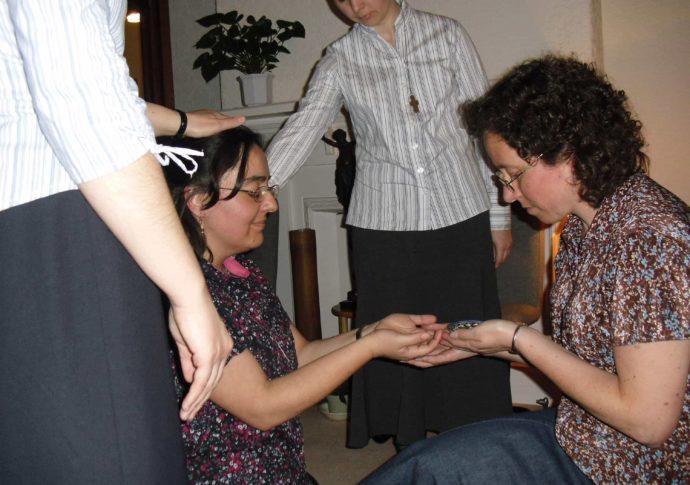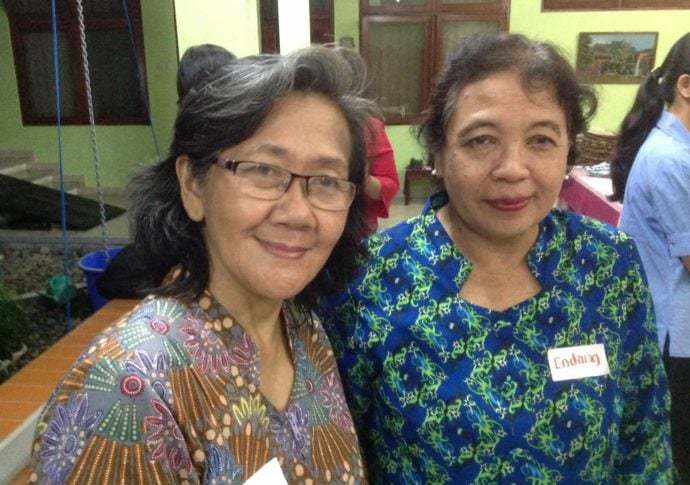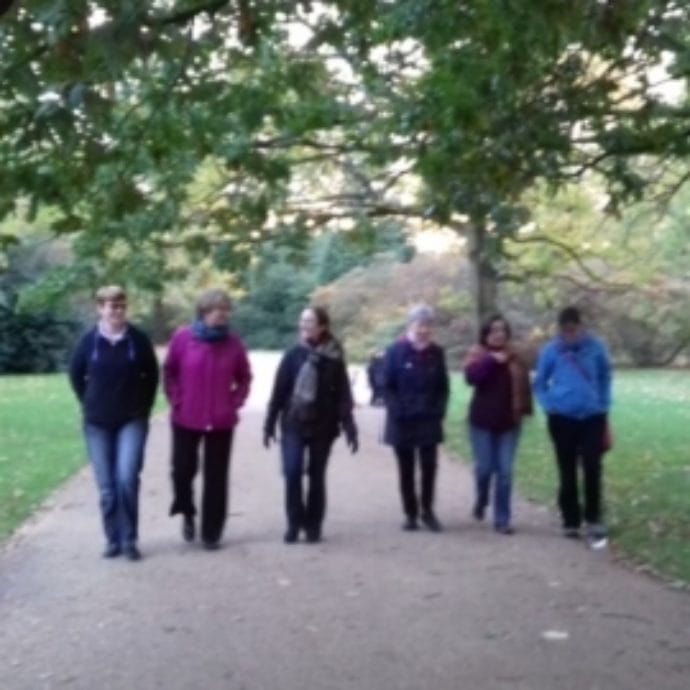This reflections was first posted by Audrey, fcJ on her blog, surprising-grace.blogspot.com.
„Shout for joy…! Sing joyfully…! … [The Lord] will rejoice over you with gladness, and renew you in his love; he will sing joyfully because of you, as one sings at festivals.” (Zephaniah 3: 14, 17-18a)
Have you ever experienced someone bursting into joyful song because of you? Those who have fallen in love with another have perhaps experienced such joyful expressions of love in other ways – in a heartfelt letter, in a tender embrace, or in the particular way that our beloved looks at us. This Sunday’s readings call us to rejoice, because God loves us just as passionately – and more!
How do we experience God’s love? At some points in our lives, of course, it is difficult to believe in our beloved-ness: in times in confusion and hardship, in times when we are aware of our failings and imperfections, in times when we feel lonely and in pain. But the coming of Christ in the stable, light to a people suffering and oppressed, reminds us that God in God’s infinite love is already present in the midst of our messy, contradictory lives.
We can know this, Daniel O’Leary suggests, by looking back into our memories: Think, for instance, of the most complete, loving moment you can remember. Think of all that has ever moved you profoundly, whether this be the silence of the darkness, the forgiveness of a friend, or the wind in the … trees. All of that unearned, undeserved. And it is all free.
[Then] think of the most liberating moments in your life – when, for instance, at the end of your worst night of loss, you still got up, drew back the curtains, and, without knowing why, your stalled heart began to beat with hope again. … That is when you were experiencing … God.
[From: Daniel O’Leary, Treasured and Transformed: Vision for the Heart, Understanding for the Mind (The Columba Press, Blackrock, Country Dublin, 2014, pp. 64-65).]
This is why we can cry out with the psalmist, “God indeed is my savior; I am confident and unafraid.” (Isaiah 12:2)
Knowing that God is faithfully present in the midst of the messiness of our lives also moves us to an attitude of simple yet radical trust. “Have no anxiety at all,” says Paul in the second reading (Philippians 4:6). This profound trust in God takes away our need to constantly accumulate possessions – whether material riches, power, or acclaim – to prop up our fragile sense of security or self-worth. Instead, we are able to appreciate things for what they are: gifts from a generous God. This enables us to hold lightly onto things, taking just what we need from the universe, and giving generously that others might also live.
This is what John the Baptist has in mind when he says, “Whoever has two cloaks should share with the person who has none. And whoever has food should do likewise.” Our faith in God should challenge us to a “sapat” lifestyle: to recognise what is enough for us to have, and leave room for others. In a world where some enjoy luxurious lifestyles in gated communities while countless others struggle to survive with some shred of dignity, we are also called to accountability, and challenged to embed this principle in our social structures.
How might we make a start on that this Advent?
You can also download the reflections here.
Note: The Scripture readings from the Second Sunday of Advent can be found here.




















